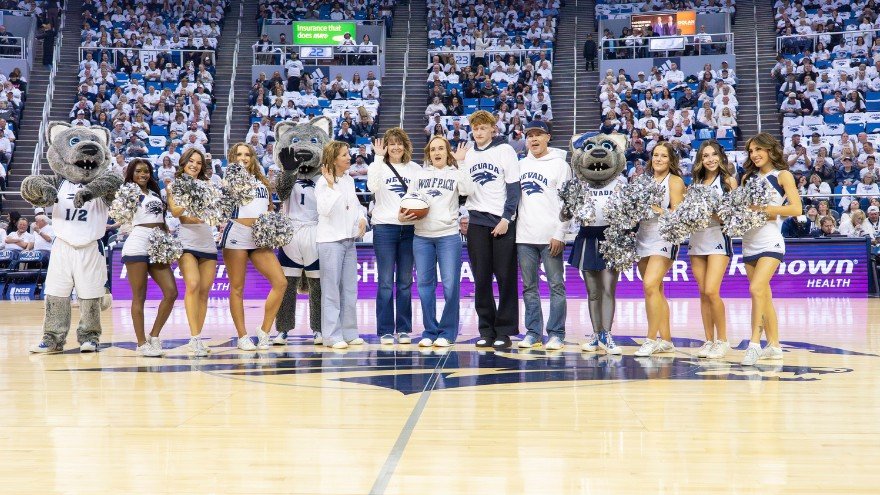

Cancer can develop at any age, and that’s why the experts at Renown are ready to help you stay ahead of breast cancer, especially if you're in your 20s or 30s. We're talking about early detection, signs to be aware of, and why being proactive is a big deal.
Studies show there has been an increase in breast cancer in younger women. Although breast cancer is rare in women under 40, when it occurs, it tends to be aggressive. The tricky part? Many young women don't think it can happen to them, so they don't check for the signs as often as they should.
Reviewed by Dr. Colleen O'Kelly-Priddy, MD, FACS, breast surgical oncologist at Renown Women's Health.
7 Early Signs and Symptoms
- New or Different Lump in the Breast: A lump is probably the most well-known symptom. Breast cancer is usually painless and firm, but it can also be soft. If you find a new lump, don't panic, but don't ignore it either.
- Changes in Breast Size or Shape: Have you noticed that one breast looks a little different? Whether it's swelling, shrinking, bulging, dimpling, or seems off, it's worth mentioning to your doctor.
- Skin Changes: If the skin on your breast starts to thicken or turn red, it's time to pay attention. If your skin starts looking like an orange peel (thickened, with prominent pores), that warrants evaluation.
- Nipple Discharge: Spontaneous drainage coming from your nipple that isn't breast milk—especially if it's clear or bloody—should be checked out.
- Nipple Changes: If your nipple starts to invert, flatten, or look different, call your doctor.
- Breast Pain: Continuous pain in your breast or nipple that isn't linked to your menstrual cycle is another symptom to note. However, breast pain is very common and is only rarely a sign of cancer, so don’t panic.
- Swelling or Lumps in the Armpit: When it spreads, breast cancer usually first goes to the lymph nodes in the armpit, so swelling or lumps under your arm should be on your radar.
Schedule Your Mammogram

Types of Breast Screenings
New technology and evolving screening guidelines are crucial for women to understand and choose the right screening method for their specific needs. The most common types of screenings available today are:
- 2-D Mammography: In a standard 2-D mammogram, the tech takes X-rays of the breast, compressing it top-to-bottom and side-to-side, providing a2-dimensional view in each direction. These pictures can show the radiologist if there are abnormalities you might not be able to feel.
- 3-D Digital Tomosynthesis Mammography: Renown Health offers cutting-edge 3D Tomosynthesis Mammograms at all locations. This technology creates detailed images by combining multiple X-ray layers, allowing radiologists to view the breast with greater precision. It's great for spotting anything unusual, from cancer to cysts, and decreases the need for additional call-back imaging.
- Whole-Breast Ultrasound: If you have dense breast tissue, this ultrasound is a game-change and uses sound waves—no radiation—to check for breast abnormalities, like ultrasounds for pregnancy. This 20-minute exam is recommended for those with dense breast tissue, improving early detection. It complements, but doesn’t replace, mammograms.
Why Early Detection Matters
Catching breast cancer early can make all the difference. Catching breast cancer early means better survival and more treatment options. That's why breast self-awareness and knowing what's normal for your body are so important.
Renown recommends annual screening mammograms beginning at age 40 for average-risk women to stay on top of your breast health. If you have a family history of breast or ovarian cancer or other risk factors, the Renown Breast Surgery Care team provides formal risk assessment and surveillance planning within the high-risk clinic.
When to See a Provider
If you notice any of these symptoms, don't wait—book an appointment with your healthcare provider. Most changes in your breasts aren't serious, but it's always better to be sure. Your doctor can help you figure out what's going on and what to do next.
Related Blogs


BRCA2 and Breast Cancer Risk: A Mother and Daughter’s Story
